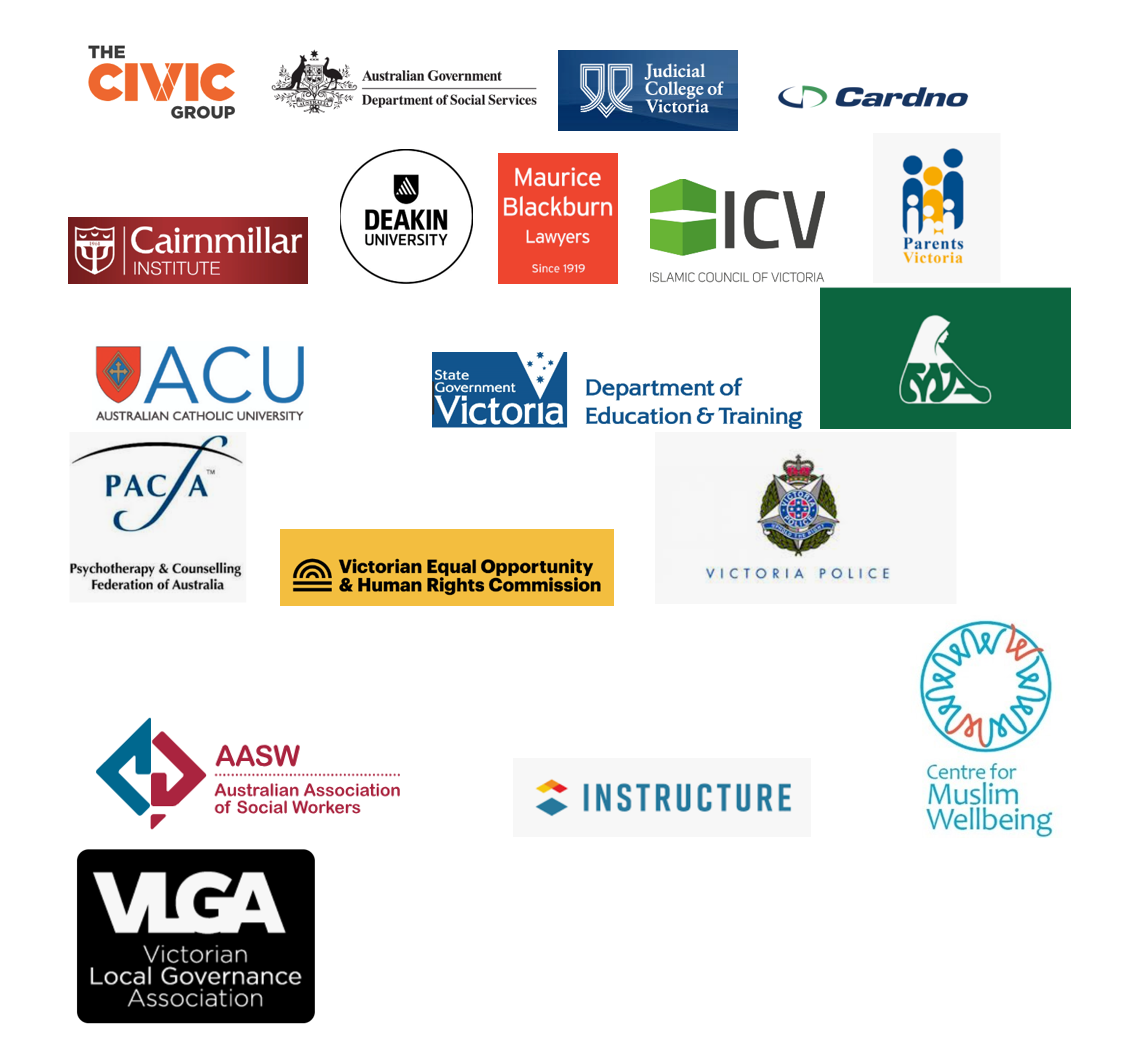Cultural Intelligence Training
Cultural Intelligence training assists teams to be consistently curious and conscious of the pervasive influence of culture on ways of being, doing and relating at work and everyone at work has culture and is influenced by it, whether they realise it or not.
“Cultural intelligence (CQ) is your level of effectiveness working in diverse cultural contexts. ”
Our subject matter expertise includes:
Cultural and Psychological Safety in the workplace
Culturally Intelligent Leadership
Culturally Intelligent Teams
Cultural Intelligence in Mental Health Care.
Culturally Intelligent approaches to addressing family violence.
‘The psychology of doing of difference, inclusion and belonging (What works and what gets in the way) in organisations.
Our Services
Consultation & Advisory
Staff training sessions & workshops (90 minutes - 2.5 hours - 2 day intensives). Enquiries welcome for alternative engagements.
Keynotes for forums and conferences
Facilitation & moderation of panel discussions
Submit an enquiry through our website for all cultural intelligence training and consultation.
Advancing Organisational and Team Cultural Intelligence (CQ).
Our programs provide many opportunities for teams to ‘do difference’ and become ‘culturally conscious’ through exchanging stories, and experiential learning experiences using ideas around culture, cultural identity, intersectionality, inclusion and diverse ways of working.
Create a playful space where meaningful intercultural connections within teams can be made.
Our method of delivery is both informational and creative.
We may use props, metaphors, visual imagery or even clay to bring to life what we teach.
We borrow the Principles of Improvisation (Put down your clever, Be affected, Move, Accept offers, Make your partner look good, Notice more, Commit yourself, Let Go) to facilitate learning.
We prefer workshops and training that are co-designed. You know your people and we know our content.
Sectors we have worked with before:
Government (Federal/State & Local) - Commercial - Tertiary Institutions - Primary Health Care - Mental Health Services -Legal - Human Rights - Employment & HR - Religious Institutions - Community Services - Multicultural communities & NGOs
Our Previous clients:
Building a case for Organisational CQ
Embedding cultural intelligence across organizations can have several significant benefits, particularly in today's globalized and diverse business environment.
Global Business Expansion
Enhanced cultural intelligence enables organizations to expand their operations globally with a better understanding of diverse markets and customer behaviours.
Team strengthening
Cultural intelligence fosters better understanding and perspective taking which improves communication and collaboration among diverse teams. Teams with higher CQ, similar to team with high Emotional Intelligence (EQ) aren’t able to eliminate every misunderstanding, but they are able to repair and resolve it more effectively.
Increased Innovation and Creativity
Culturally intelligent teams harness the asset that is diversity, diverse perspective and diverse types of knowledge, which facilitates innovation.
Attraction and Retention of Talent
Organisations with a reputation for cultural intelligence are more likely to attract and retain top talent from different backgrounds. Talented employees now seek out workplaces that are ‘culturally safe’ and traditional diversity and inclusion approaches have not always achieved that.
Flexibility and Agility
Cultural intelligence reinforces a set of motivational, cognitive, emotion-focussed and behavioural skills to equip individuals and teams with the ability to adapt to new environments and cultural contexts.
Enhanced Relationships
Understanding and respecting the cultural nuances of clients and customers can lead to improved relationships, increased customer satisfaction, and a stronger brand reputation.
Increase in Workplace Cultural Safety
Cultural intelligence helps to foster curiosity and a skillset to improve all staff interpersonal functioning in intercultural contexts. Culturally intelligent organisations put the onus on every employee to reflect on their own cultural background, identity and ways of being and doing. It also improves perspective taking and appropriate use of cultural knowledge, which reduces reliance on unconscious bias and helps to break down cultural barriers, ceilings and stereotypes, fostering a more inclusive and welcoming workplace where everyone feels valued and respected.
Effective Negotiation and Decision-Making
Cultural intelligence improves negotiation skills by providing cultural insights into the cultural aspects that influence decision-making, power, motivation, uncertainty avoidance and competitiveness. This can lead to more successful business deals and partnerships.
Legal and Ethical Compliance
Awareness of cultural differences is crucial for navigating legal and ethical considerations in various regions. The CQ model can help organisations think through differences in perspectives and attitudes towards a range of societal issues.
Risk Management
Cultural intelligence aids in recognising potential cultural pitfalls and mitigating risks associated with cross-cultural misunderstandings, thereby reducing the likelihood of costly errors.
Corporate Social Responsibility (CSR)
Demonstrating cultural intelligence aligns with CSR initiatives, showcasing a commitment to ethical business practices and social responsibility on a global scale.
Strategic Advantage
Organizations with a high level of cultural intelligence gain a competitive edge in the global marketplace by being better positioned to adapt to diverse market conditions and capitalize on emerging opportunities.
More information on Cultural Intelligence (CQ) and THE CQ MODEL.
When we interact with people with a very similar cultural background as ourselves, we intuitively use a set of social cues and cultural scripts (ways of doing things) to engage with them. However, when we interact with a person from a different cultural background we unconsciously behave and relate with little thought to their ways of being and working.
When our colleague’s ways of being, doing and working are dissimilar to our own, we may put it down to ‘personality’ and underestimate the influence of cultural background, cultural scripts and identity.
As we commit to the value of equality, we aim to treat people all the same, but this idea lacks understanding for how people might want to be treated differently reflective of cultural and personal preferences.
To improve our relationship with others we often don’t realise the influence of culture on our own behaviour nor think about the way culture influences our likes and dislikes towards certain types of behaviour, our communication style (direct vs indirect), the way we make decisions, the way we lead, or our pattens of autonomy or collaboration.
Research from over 30 countries have consistently revealed 4 capabilities that emerge from among those that can be described as culturally intelligent. The CQ Model emphasises the importance of developing an overall repertoire of motivation, understanding, strategy and skill that enables one to move fluently through different cultural contexts.
The 4 areas of capability are as follows:








